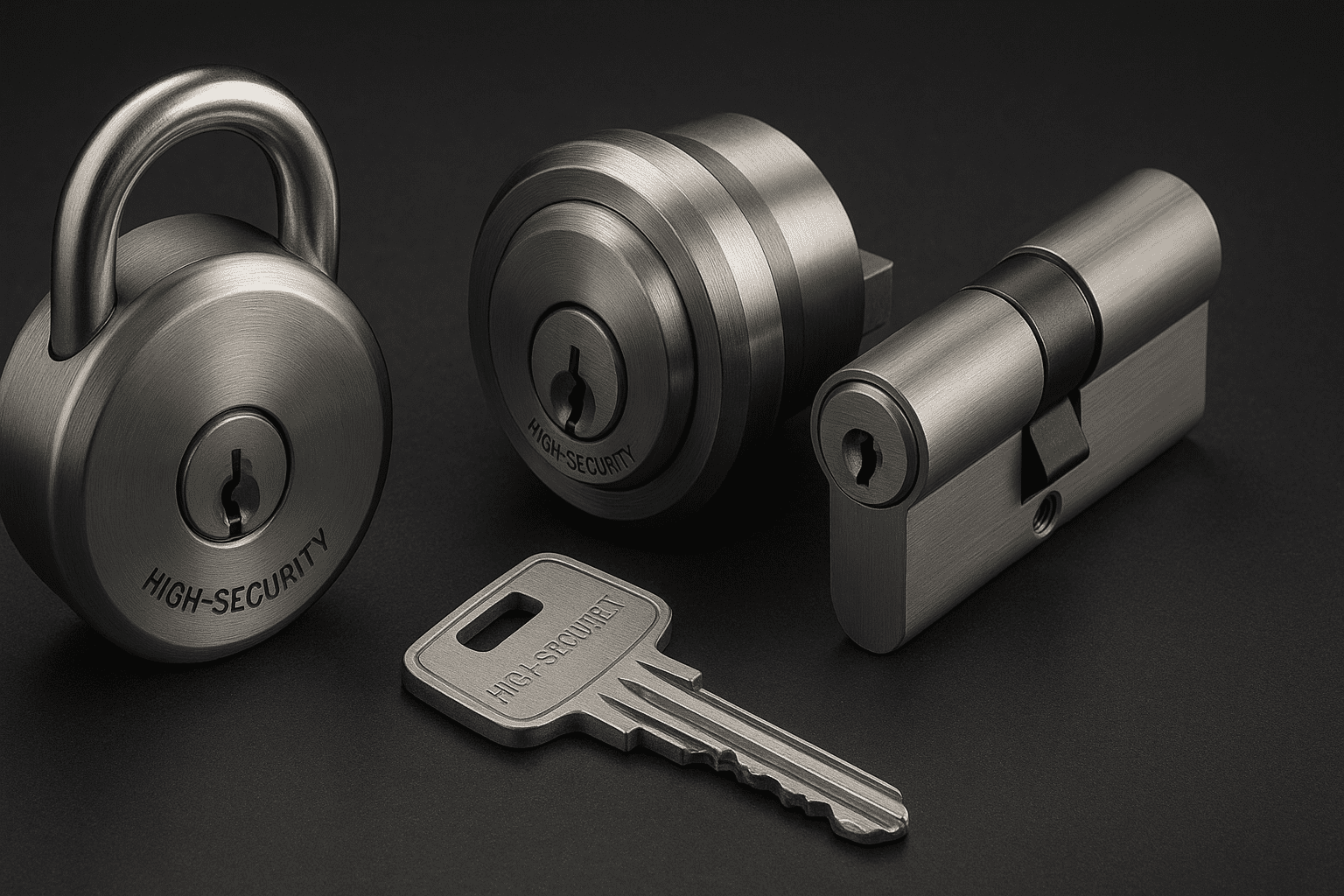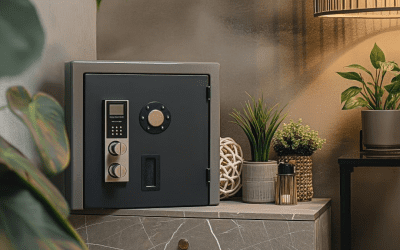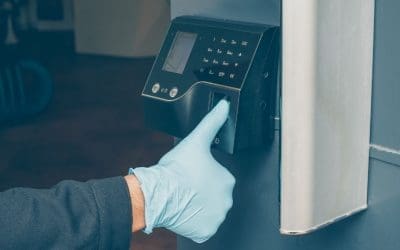When it comes to protecting your home, business, or any valuable asset, a lock is only as good as its weakest link. While standard locks can offer basic protection, high‑security locks are designed to go much further offering robust resistance to tampering, duplication, and physical attack. For those in need of reliable protection, including emergency situations handled by a 24/7 Emergency Locksmith, understanding what high‑security locks are, where they are best used, and the benefits they bring is essential.
What Is a High‑Security Lock?
A high‑security lock is a lock system engineered with advanced features that make it significantly more resistant than ordinary locks to forced entry attempts, key duplication, or covert manipulation.
Key characteristics include:
-
Advanced cylinder design: These locks use complex mechanisms (e.g. multiple locking pins, sidebars, rotating discs) that are more difficult to manipulate using traditional picking tools.
-
Pick, bump, and drill resistance: The materials and construction are hardened – steel/thicker alloys, reinforced strike plates, anti‑drill inserts, etc. Techniques like bumping, which can exploit weak standard locks, are much harder or even impractical.
-
Key control / restricted key systems: The keys are designed in ways that prevent people from duplicating them casually. Often patented keyways are involved, and only authorized locksmiths or suppliers can make duplicate keys under strict conditions.
-
Durability and environmental resilience: High‑security locks are made to last, able to withstand frequent use, environmental stress (humidity, temperature extremes, moisture), physical force, corrosion, etc.
Applications: Where High‑Security Locks Shine
High‑security locks are not necessary everywhere, but there are many scenarios where their advantages are especially relevant. Here are the key use‑cases:
- Residential Entry Doors
If you want to protect your home, especially front or back doors, upgrading to a high‑security lock helps prevent break‑ins. For homes in high‑crime areas, or if there are valuables inside, the added protection matters. - Commercial Properties
Shops, offices, warehouses, and industrial sites often store high‑value goods or sensitive data. High‑security locks help protect assets and reduce liability. Also, frequent use and higher risk of forced entry make durable locks more cost‑effective over time. - Critical Infrastructure & Public Facilities
Hospitals, schools, data centres, government buildings, power utilities places where unauthorized access can have serious consequences. High‑security locks are often required by law or regulation. - Areas with Restricted Access
Safe rooms, vaults, strongrooms, or zones within a building that are not open to everyone. Key control, audit trails, and superior resistance to forced attacks become crucial. - High‑Use Doors
Doors that are opened and closed many times a day such as in commercial entrances, emergency exits, or shared facilities benefit from the durability and long life that high‑security locks offer. This also makes things easier on 24/7 Emergency Locksmith professionals, who often encounter wear‑related failures. - Insurance & Safety Compliance
Some insurance policies offer reduced premiums for properties with certified high‑security locks. Similarly, compliance with safety or fire codes may require locks that meet certain standards. - Integration with Access Control Systems
Many modern high‑security locks are compatible with or part of broader access‑control systems: electronic keycards, biometrics, smart credentials. This lets you track access, revoke permissions easily, and combine physical security with logging and remote control.
Benefits of High-Security Locks
High-security locks are more than just tough. They’re purpose-built to offer advanced protection, reliability, and peace of mind. Whether you’re securing a home, business, or high-risk facility, investing in a high-security lock can deliver a wide range of advantages:
1. Superior Protection Against Break-Ins
High-security locks are designed to resist forced entry methods like:
-
Lock picking
-
Bumping
-
Drilling
-
Impressioning
-
Prying or force attacks
These locks often include anti-drill plates, complex pin configurations, and hardened materials that make them far more resilient than standard locks.
2. Key Control and Anti-Duplication
One of the most valuable features is key control. High-security locks often use patented keyways that:
-
Prevent unauthorized key duplication
-
Require special authorization for copies
-
Are only cut by certified locksmiths
This reduces the risk of someone having a duplicate key made without your knowledge an essential layer of security for businesses and landlords.
3. Long-Term Durability
High-security locks are built with high-grade materials like hardened steel or brass and are made to withstand:
-
Heavy, frequent use
-
Harsh weather or environmental conditions
-
Corrosion and rust over time
They’re ideal for both residential and commercial doors that experience daily wear and tear.
4. Lower Risk of Emergency Lockouts
For those relying on a 24/7 Emergency Locksmith, fewer failures mean fewer urgent calls. Because high-security locks are engineered for precision and durability, they are:
-
Less likely to jam or break
-
Less prone to internal mechanical failure
-
Easier to rekey or service by qualified professionals
This leads to fewer unexpected issues and when problems do arise, professional locksmiths can handle them efficiently.
5. Compliance with Insurance and Regulatory Requirements
In many commercial or high-risk environments, high-security locks are required by:
-
Insurance providers for reduced premiums
-
Safety codes and building regulations
-
Industry compliance standards
They can help you meet these criteria and avoid fines or complications in the event of a claim.
Role of 24/7 Emergency Locksmiths and High‑Security Locks
For locksmiths who work around the clock, offering high‑security locks matters for several reasons:
-
Rapid Response Matters: If a property has robust, quality high‑security locks, the incidents that require emergency locksmith intervention are less frequent. When they do occur (lost key, damage after attempted break‑in etc.), having well‑chosen locks makes replacement or repair smoother.
-
Right Tools & Expertise Required: High‑security locks sometimes need special tools for key cutting, rekeying, or servicing. Locksmiths who advertise as 24/7 Emergency Locksmith must be equipped not just with the intent to help anytime, but the capacity to handle these advanced systems.
-
Customer Trust & Reputation: A locksmith who understands and can install or repair high‑security locks enhances credibility. Clients feel safer knowing their locksmith can handle advanced security rather than offering only basic locks.
Things to Consider When Choosing a High‑Security Lock
Because you want value and real protection, not just marketing hype, consider these before making a purchase:
- Certification & Standards: Look for recognized certifications. These ensure certain levels of mechanical strength, resistance, and durability.
- Key Control Policy: Understand how key duplication is controlled. Are keys patented? Do you need authorization cards to get copies?
- Compatibility: Ensure the lock fits your door (size, material, thickness), works with your door frame, and integrates if you already have an access‑control system or plan to use one.
- Attack Resistance Ratings: Check for ratings against drilling, bumping, prying, etc. Also, materials used – hardened steel, anti‑drill plates, reinforced strike plates.
- Maintenance Requirements: Even high‑security locks need occasional care: lubrication, checking alignment, ensuring keyway cleanliness.
Conclusion
High‑security locks are not just “more expensive locks” – they are engineered devices that offer significantly improved protection, resistance to tampering and duplication, longer life, and peace of mind. Upgrading your security through high‑security locks means more protection, fewer emergencies, and enhanced confidence in your property’s safety.




